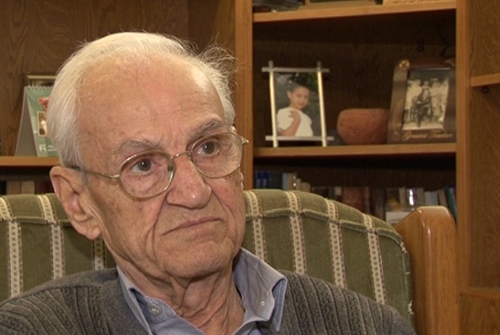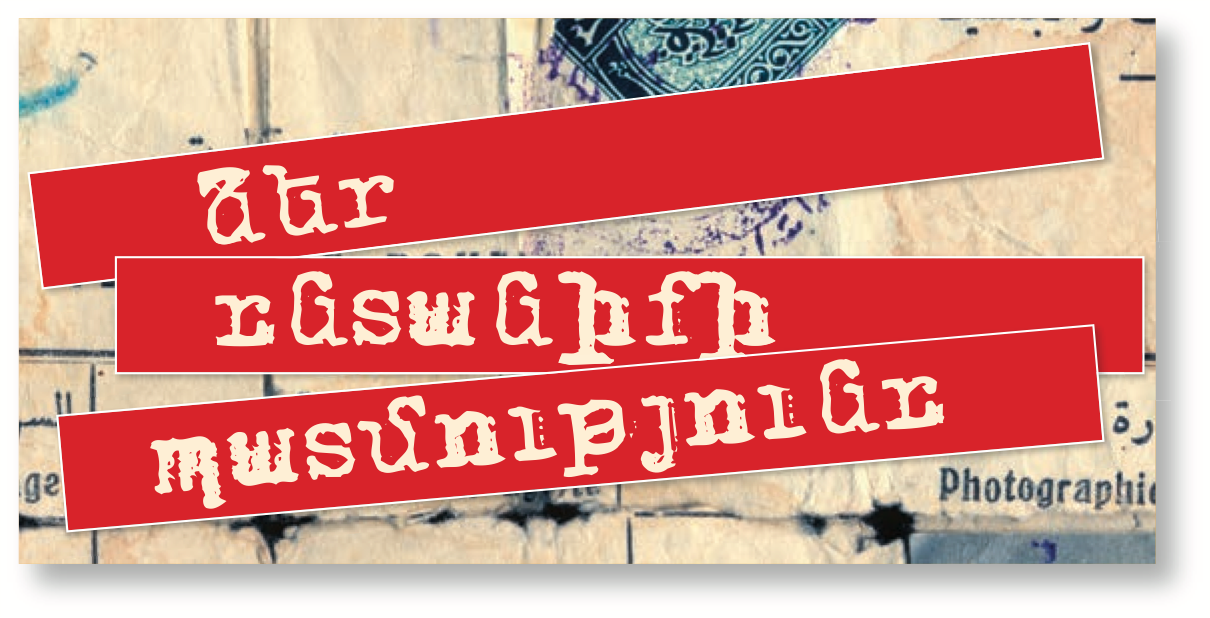 Teacher (Aynjar)
Teacher (Aynjar)
Movses Ayntabian
I don’t know what excitement there was in Jerusalem in this regard, but I know that there were disagreements in Aynjar because there was a segment that didn’t want to go. There were some small clashes. Those who were members of the ARF had to publicly resign p=by placing a notice in the newspaper.
For example, Tovmas Habeshian told me this. That he resigned but later realized it was a disgrace – I’ve been a party member all this time and now they are forcing me to resign? So he decided not to go.
At first, as far as I heard, the propaganda line was that everything in Armenia was very good. Press a button and your food arrives and the lights go on. You see, we didn’t have electricity here. These kind of things.
The people left for Armenia with great enthusiasm. This was a motivating factor, especially since, as I remember my childhood, economic conditions were very bad in Aynjar. I used to go to school barefoot. We ate bread made from barley. Illnesses were so widespread that there were days when five people died.
But I believe the repatriation was the right thing, even though the propaganda was wrong. I am convinced that a sizeable segment of our people would again go to the homeland motivated by patriotism. However, when you go to the homeland with great expectations and see that they don’t exist, it’s greatly depressing.
And I believe that this was one of the reasons for the divide that opened between the locals and the immigrants. For example, when my cousin Paylag came here in 1969, I met him at the Beirut port. He arrived by ship. There were no planes. He stood on the bridge of the ship and I yelled ‘Brother (aghbar) Paylag’. When he disembarked we embraced and he said to me, ‘aghbar, aghbar…this word, how sweet it sounds here but how terrible it sounds in Armenia’.
And the French-Armenians emigrated immediately when the chance arose. Under pressure, the central government of the Soviet Union granted permission and they left.
My brother is now in America. He’s formed a very nice Armenian family, but that Armenian family will eventually become Americanized. They will become Americans.
It no longer makes sense for me to go to Armenia, but I instruct the youth to go. In the past, there was this wonderful Syrian-Armenian. His name was Hovsep or Hovsepian. I don’t know. He did some great promotion in this regard saying, I have come to Armenia and settled here. And I will bring my grandchildren. He said that all those, let’s call the naysayers, who claim that they place obstacles before those doing business, are wrong. If this is correct, then we must go.



















